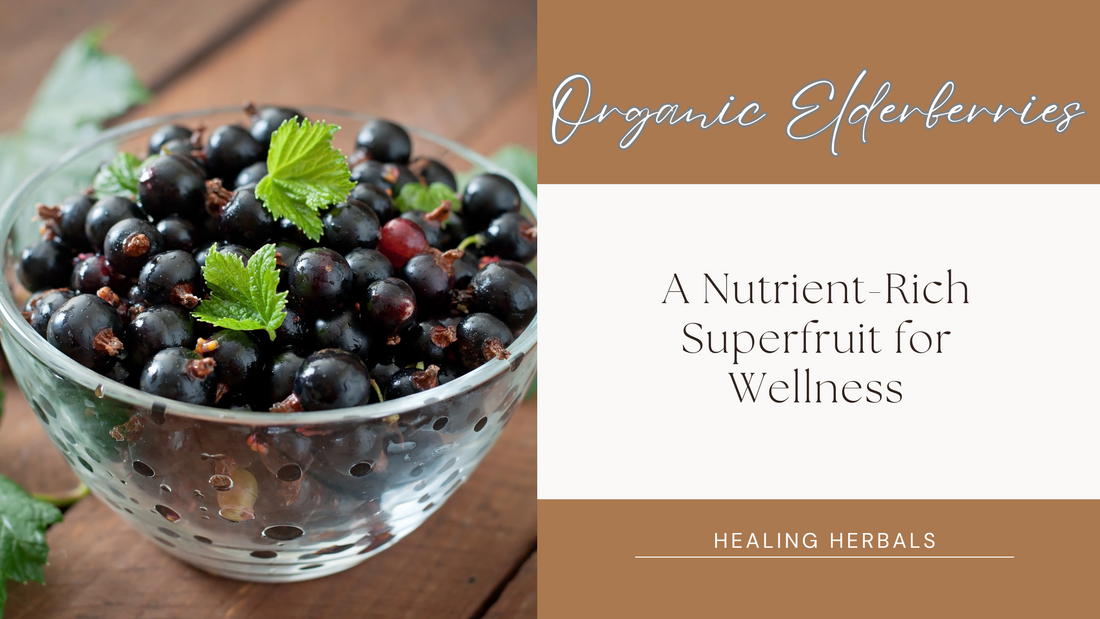
Organic Elderberries: A Nutrient-Rich Superfruit for Wellness
Share
Elderberries, small dark-colored berries of the genus Sambucus: Organic elderberries: small, inconspicuous, richly colored, with an amazing richness of nutritional value treasure of nature. Beyond the delicious tartness, these berries hold so many wellness opportunities. For centuries, elderberries have been valued for their ability to provide immune support in herbal cultures across the globe. Imagine fortifying your body with powerful antioxidants while enjoying the pure essence of organically grown fruit. Choosing organic not only heightens your health but also supports sustainable farming practices. Ready to experience the transformative organic elderberry benefits? Let's explore why this super fruit deserves a spot in your life.
Nutritional Profile of Organic Elderberries
The nutritional value of elderberries is impressive because they are nutrient-rich and abundant with a combination of vitamins, like vitamin C, vitamin A, and B vitamins. They also contain essential minerals including potassium, iron, and calcium. Another important point is that elderberries are a powerhouse of phytonutrients such as anthocyanins, flavonols, and phenolic acids. These compounds contribute to the deep purple color of the berries and their diverse applications in herbal traditions.
Immune System Support from Elderberries
Elderberries are often linked to immune resilience, thanks to their abundance of antioxidants. These compounds, particularly anthocyanins, help fortify the body's natural defenses. Elderberries for immune support are particularly valued due to their role in supporting the production of cytokines—signaling molecules that regulate immune responses. Incorporating elderberries into one’s diet can be a thoughtful addition to maintaining immune equilibrium.
Antioxidant Properties of Elderberries
It is the anthocyanins that occur in high concentrations that form the basis of the antioxidant properties in elderberries. These pigments are responsible not only for the vibrant coloration of elderberries but also play a significant role in countering oxidative stress. Oxidative stress, by free radicals, can impact cellular integrity. The neutralization of such radicals by elderberries supports cellular vigor and general health and well-being.
Elderberries and Digestive Health
Elderberries contain dietary fiber, which encourages good digestion and bowel movements. Elderberries may additionally be a prebiotic food, encouraging a nurturing gut microbiome, an important part of whole well-being. A balanced gut environment facilitates better nutrient uptake and immune function, and eating organic elderberries can play a subtle yet meaningful role in this system.
Eating Organic Elderberries as a Part of Your Daily Routine
Organic elderberries are extremely versatile and can be enjoyed in many forms. Their dried version is great for making teas or infusions, while elderberry syrups add flavor to drinks or desserts. Those who wish to try out something new can just use elderberry jams or sauces to add some oomph to their culinary creations. A simple recipe might include steeping dried elderberries with honey, cinnamon, and cloves for a warming, antioxidant-rich drink. This makes it pretty easy to enjoy organic elderberry benefits in daily life.
Sustainability and Ethical Issues
Choosing organic elderberries is a decision that goes beyond personal health but has an impact on the environment and in terms of ethical farming practices. Organic farming excludes hazardous pesticides that may cause damage to ecosystems and kill pollinators. This also means that it helps in preserving biodiversity and supports small-scale farmers whose main aim is to protect the environment. The choice of organic samples by consumers results in a more harmonious relationship between humans and nature while enjoying the nutritional advantages of elderberries.
Organic Elderberries from Healing Herbals:




